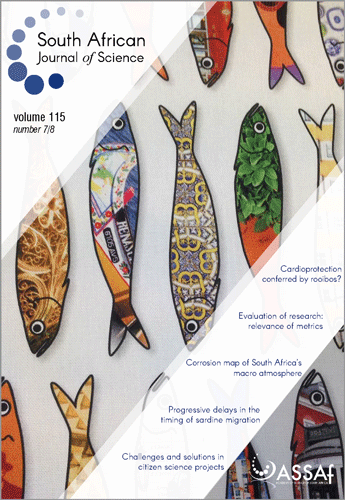Human evolution in the South African school curriculum
DOI:
https://doi.org/10.17159/sajs.2019/5672Keywords:
Life Sciences literacy, science education, Social Darwinism, evolution education, Life Sciences curriculumAbstract
A decade after the introduction of the topic into the South African public school curriculum, the theory of evolution by natural selection is poorly understood among those who teach it, and that flawed understanding is transferred to those attempting to learn it. The curricula, support material and textbooks designed to underpin teaching and learning of evolution are often inaccurate. Deeply held religious views in the country, especially Christianity, remain a stumbling block towards understanding and accepting evolution. The lack of scientific literacy allows for the continuation of Social Darwinism and racial stereotypes and deprives the victims of those ills of the knowledge and mechanisms of thought to counter these ideas. This review explores the relatively sparse but nevertheless well-conducted research into evolution education in South Africa. We conclude that an understanding of human evolution is essential to the country’s growing democracy because it provides a framework within which South Africans can understand and appreciate the diversity and heterogeneous nature of our society.
Significance:
- Various obstacles in the teaching and learning of evolution are identified, and generalisable recommendations are provided to improve evolution education on a practical level.
- Evolution education is important for the South African public: to take pride in our rich fossil resources; to understand and appreciate human diversity; to dispel the racist myths of Social Darwinism; and to ensure the success of our education system by teaching the consilience of induction and logical reasoning.
- This synthesis of the research provides a starting point for anyone wanting to conduct evolution education research in South Africa in the future, specifically those in the fields of curriculum reform, life sciences or biological anthropology.
Published
Issue
Section
License

All articles are published under a Creative Commons Attribution 4.0 International Licence
Copyright is retained by the authors. Readers are welcome to reproduce, share and adapt the content without permission provided the source is attributed.
Disclaimer: The publisher and editors accept no responsibility for statements made by the authors
How to Cite
- Abstract 1700
- PDF 2190
- EPUB 253
- XML 423












.png)